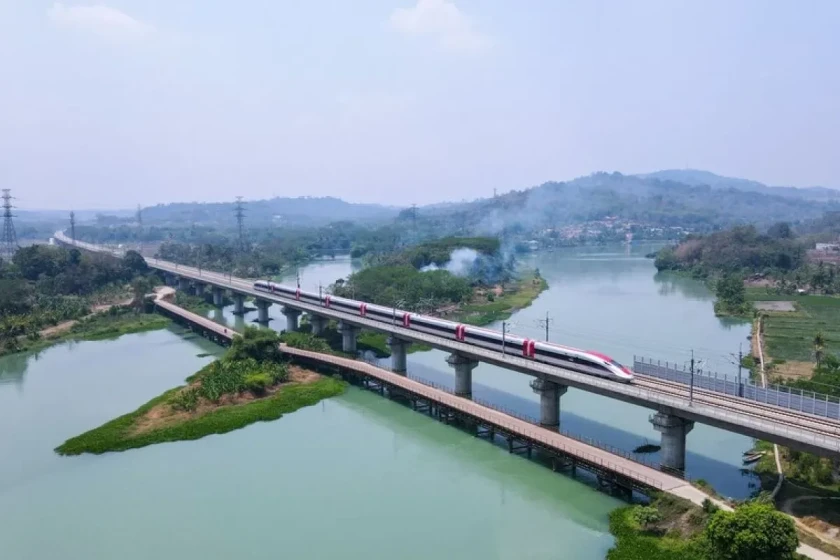Whoosh! It's not a comic book exclamation but the name of a new high-speed train line. Interestingly, President Jokowi himself was involved in choosing it. In reality, it's an acronym for the Indonesian words Waktu Hemat Operasi Optimal Sistem Hebat, loosely translated as "Great System for Optimal Time Economy."

The Whoosh line opened on October 3rd, connecting the Indonesian capital Jakarta with the nearby major city of Bandung. Now, passengers can travel between them at a speed of 350 km/h. The 140 km journey takes only 35-40 minutes, compared to approximately 3 hours on a regular train. For October, ticket reservations for these trains are free for everyone, and the future pricing is currently under discussion. It is known that the price will range from 250,000 to 350,000 Indonesian rupiahs. Currently, a regular train from Bandung to Jakarta costs between 200,000 and 500,000 rupiahs depending on the class, so the proposed price is quite reasonable even at the upper limit.
This is the first Bullet train in Southeast Asia, capable of reaching a cruising speed of 350 km/h. The line was built and launched by the joint Indonesian-Chinese company Kereta Cepat Indonesia China, which also handled train procurement and infrastructure development. President Jokowi laid the first stone in 2016, and this line is part of the country's strategic national development program. While it's undoubtedly a source of pride, there are challenges. The construction budget swelled from 77 trillion rupiahs (5.3 billion dollars) to 108 trillion (7.2 billion dollars), and the completion of Whoosh was delayed from the originally planned 2019 due to factors like the pandemic and construction costs exceeding estimates. Indonesia faces a lengthy period of repaying debts and servicing loans to the China Development Bank for this project. The president faced criticism for choosing China over Japan, which offered better financial terms. However, Jokowi ignores these attacks and plans to build the next high-speed line to the east of Java, the city of Surabaya, also in collaboration with China. Besides financial costs, there are other aspects of this collaboration, such as the migration of Chinese technology into Indonesia.
As for us in Bali, we are still waiting for our railway, which has been under construction, with varying success, since 2015. The development of Indonesia's transportation infrastructure is ongoing and quite rapid. For instance, on Sumatra, construction is underway for an all-Indonesian toll highway, and many sections are already operational, significantly reducing travel time.
Sources: cnbcindonesia.com/news/20231004052459-4-477644/asing-sorot-kereta-cepat-whoosh-warisan-atau-blunder-jokowicnbcindonesia.com/news/20231004052459-4-477644/asing-sorot-kereta-cepat-whoosh-warisan-atau-blunder-jokowiantaranews.com/berita/3752658/menhub-ceritakan-asal-usul-nama-whoosh-untuk-kereta-cepatedition.cnn.com/travel/article/indonesia-first-bullet-train-china-funding-intl-hnk/index.html
You can add one right now!